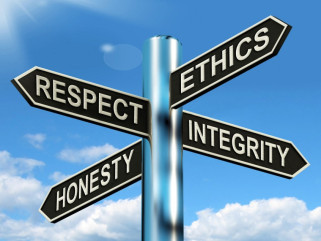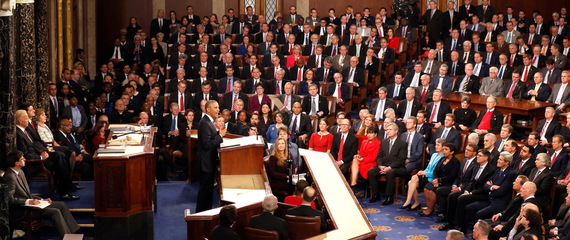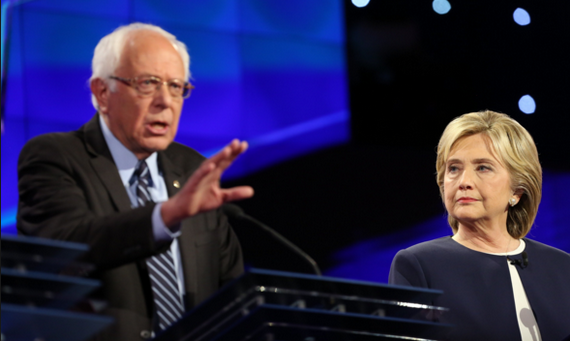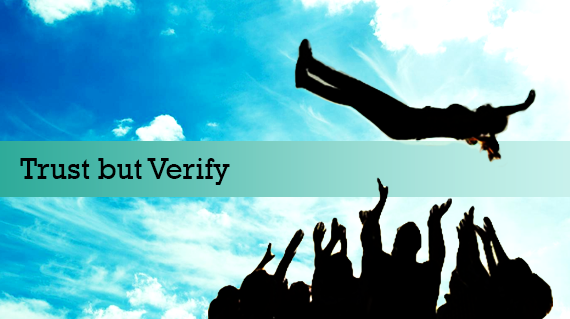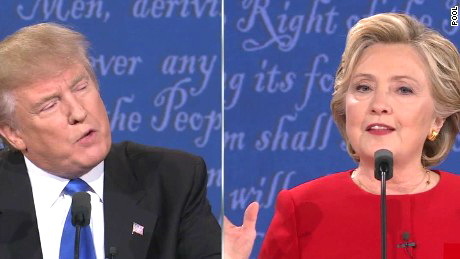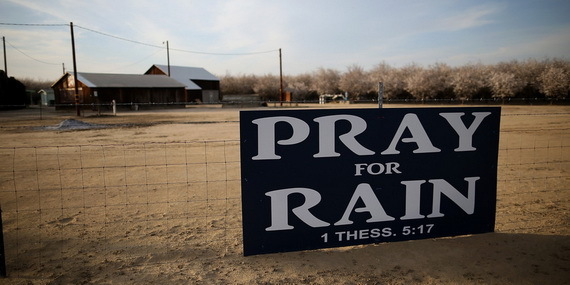Conscience has been defined as "the inner sense of what is right or wrong in one's conduct and motive." While emotions influence our conscience, what informs it is what defines us as a species - we think. Specifically, we carefully observe and critically assess reality around us to inform our conscience and ultimately, our actions. Doing so is vital to the health of our conscience, and to our survival.
Whether voting our conscience or our fantasy, both are motivated by hope - but the latter lacks the critical assessment that will anchor it to reality. And therein lies the danger of conscience sliding into fantasy.
For example, my ideal candidate for president would, if elected:
Be as pure as the driven snow;
Create world peace;
Make pollution illegal everywhere;
Redistribute wealth equitably in our society;
Grant universal access to family planning materials to all citizens;
Have the political expertise and connections to work with Congress to create laws that accomplish the above.
Fantastical expectations? Often our fantasies are visions that have the possibility of reality, given the requisite time and effort to change people's priorities.
Back to my list. The first expectation is fantastical. Our belief in our fallibility is so engrained, that we ascribe infallibility only to gods. Because of this, whomever I vote for will not be an ideal choice.
The next four expectations, however, are not necessarily fantastical, but dependent on the sixth one: working with Congress. As President Barack Obama reminded us at the 2016 Democratic convention, democracy is a team sport.
We elect a president to work within our existing political system. Based on her/his abilities and a cornucopia of ever-changing outside factors, she/he might even be able to effect important changes.
Here is where critical assessment comes into play, separating choices of conscience from fantasy. Does a candidate's record reveal an aptitude for working within our political system to achieve our hopes? Does he/she have a record, however fallibly imperfect, of achievement and dedicated work toward our visions? How rationally realistic are the candidates ideas for achieving those visions?
Vote Smart is one of many websites offering nonpartisan assessments of political candidates.
Source votesmart.org
We could compare every candidate on these critical bases: there are several nonpartisan websites that can give us an incomplete but good assessment of which candidate has reasonable chances of progressing best on our expectations.
And among those records we can also make the final, critical assessment - can we trust this candidate? Our ultimate choice can then be based on an informed conscience, not fantasy.
Source pix11.com
Bernie Sanders understands the distinction between conscience and fantasy. So do many people now who voted for Ralph Nader in 2000. A credible argument can be made that those votes made a difference in the presidential race. If so, given the record of the ensuing presidency, Nader votes had destructive consequences nationally and internationally, for both young and old alike.
Some still defend a vote for Nader as one of conscience -- but perhaps an uninformed one. A critical assessment of his ability to work within the system, or to capture the trust of most voters in being able to do so without experience, made him a vote of fantasy, however strongly his supporters wished otherwise.
Photo Source www.modernpractice.org
Trust. In God We Trust. Americans make a lot of gut choices based on trust. "Trust, but verify" has been a core tenet of American foreign policy, an old Russian proverb enthusiastically adopted by Ronald Reagan.
Yet many voters appear to be eschewing any in-depth, critical assessment that could verify whether a particular major presidential candidate, Donald Trump, possesses adequate aptitude, character or qualifications, and these voters are supporting him. Indeed, unbiased, factual, public records indicate that he is a compulsive liar who ignores factual reality to an extent far beyond any other presidential candidates. Yet a sizeable portion of the electorate is prepared to vote for him - trusting, but not verifying.
The alarming conclusion is that many voters have embraced a brand ideology incarnate in Donald Trump, as illustrated in the first Clinton Trump debate, an ideology whereby "a shared fantasy becomes part of the world."
"In many ways the performances of Donald Trump remind me of male chimpanzees and their dominance rituals," said Jane Goodall, the anthropologist, shortly before Trump won the GOP nomination. Based on implicit trust in the raw emotion of "alpha male" dominance, it requires no verification. But are we chimps, dominated by emotions without the balance of reasoning?
History shows societies suffering and even collapsing when shared fantasies crash into physical reality. Voltaire summarized the problem best long ago: "Men argue; Nature acts." (1764) An increasingly dangerous part of our reality is the rapidly changing physical world of human-driven climate change, verified by one of our most reputable US institutions, the National Academy of Sciences.
Feeding our fantasies can be a creative, yet seductive process: it relieves us of the responsibility of doing the deep, critical thinking needed to develop a responsible conscience and vote responsibly, and it allows us to ignore the complex world of reality. But in an ever grimmer and more complex reality, fantasy voting, or not voting at all, is an increasingly dangerous game to play.

